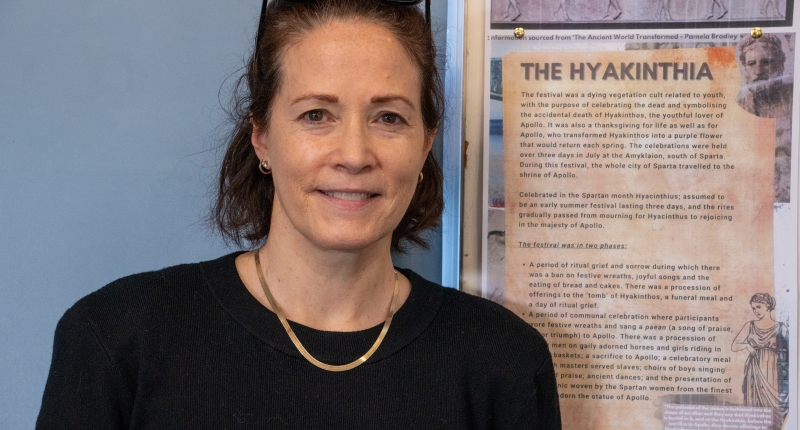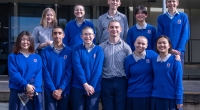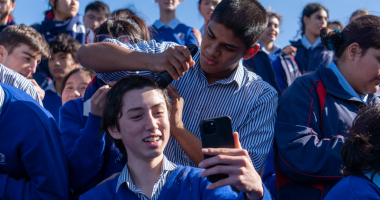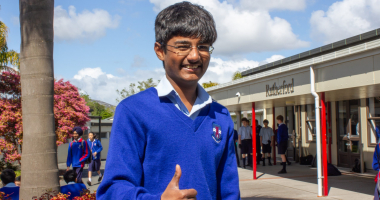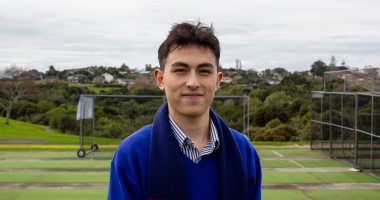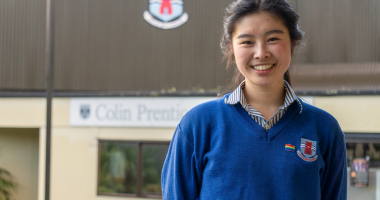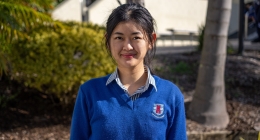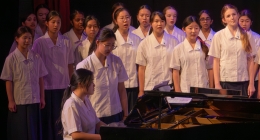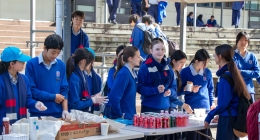Ms. Boyes is the head of classics here at Macleans College, and also a part of the Kupe house. She has extended history of studying and teaching classics both here in New Zealand and Australia. She teaches from Year 10 social studies to Year 13 and 12 classics, along with scholarship classics. She was asked about her own interests in classics, and how she came to teach at Macleans College.
Q1: What brought you to study and teach classics at Macleans?
I had been teaching Latin, Ancient and Modern history in Australia for 10 years, but needed to come home to New Zealand. I applied for the TIC Classics job at Macleans College and had a Zoom interview with Mr Goodyer and Mr Hamilton (REALLY early in the morning, Sydney time), and luckily they decided to employ me.
Q2: What was your own educational path like in becoming a classics teacher?
I did lots of things I was interested in at University. A Bachelor of Arts in Ancient Languages, Ancient History, and classics, and a Bachelor of Music Performance, followed by an honours year. I worked in an orchestra while I was studying, then decided to do a Diploma in Audio Engineering to see how that section of the music industry worked. It was then followed by some part time lecturing at the School of Audio Engineering when I finished. That led me into teacher training, majoring in music, Latin and, Classics. When I graduated I got a job teaching Latin at St Cuths, and stayed there for 12 years, eventually becoming Head of Department. I then moved to Australia, where I also did a postgrad course in Ancient History at Macquarie University.
Q3: What is your favourite piece of classic literature?
Virgil’s Aeneid – (Latin), and Aristophanes’ Frog – (Greek).
Q4: How did you initially become interested in classics and history?
I read lots of books set in the ancient world when I was a kid, and loved ancient history. I really wanted to learn Latin, which wasn’t taught in my local high school, so I was lucky to get into EGGS out of zone where I could study it.
Q5: What was a memorable moment with your students? (Etc, such as a student doing something really meaningful, or an event that changed your perspective on teaching.)
One of my students has gone on to do her PhD in Latin and is now teaching Latin and Greek at Stanford University, with a particular interest in neurodiversity in the ancient language classroom. That’s especially nice as in her first ever Latin lesson in Year 9 she threw up all over her textbook, so it was definitely memorable, but a bit of a rocky start.
Q6: What do you find most enjoyable about teaching classics?
“When my students are as enthusiastic as I am about the ancient world.”
– Ms. Boyes – Kupe Teacher, and Head of Classics
6th August, 2024
Written by Ms. Boyes, edited by Emma Li
Thumbnail by Emma Li
